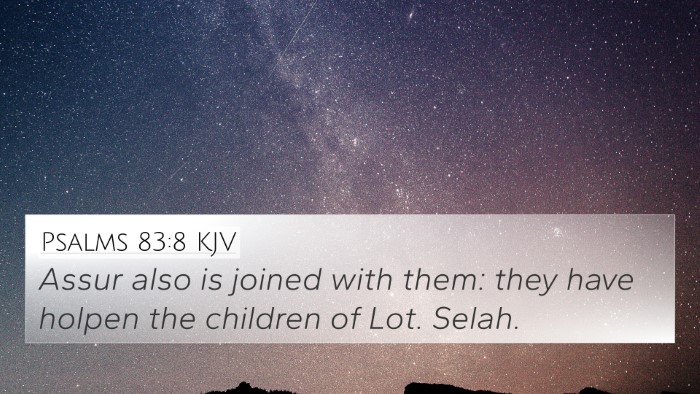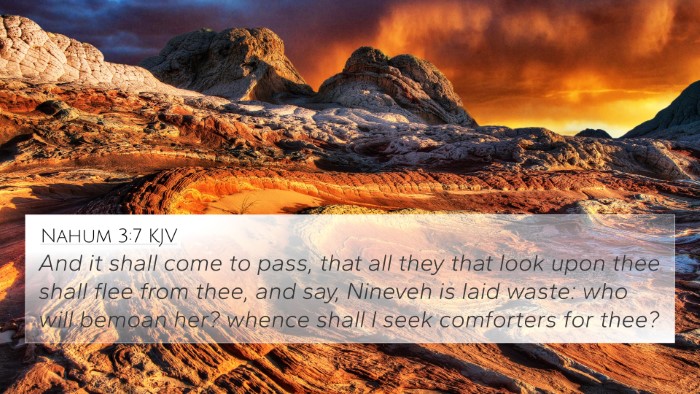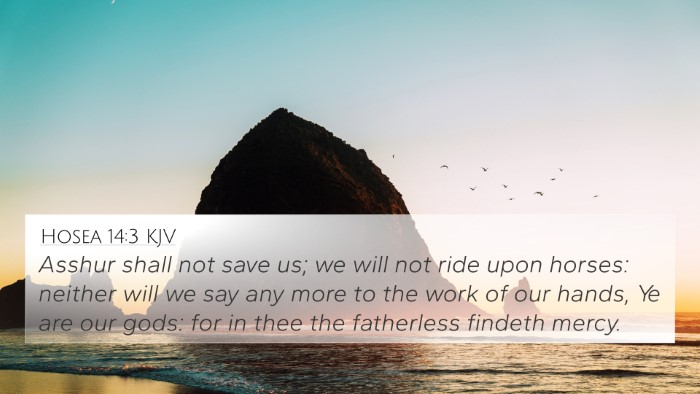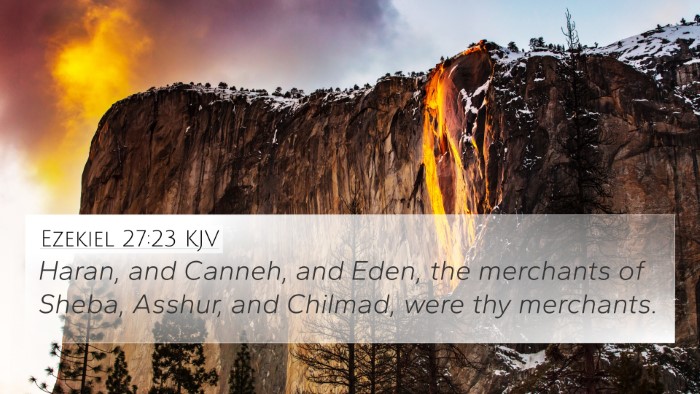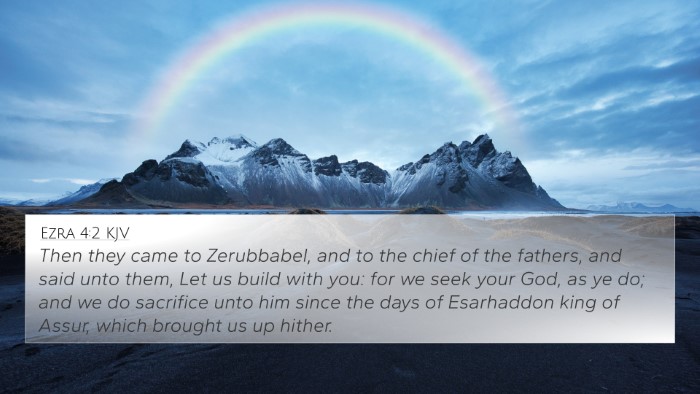Understanding Genesis 10:11
Bible Verse: Genesis 10:11 introduces the expansion of the territory associated with Nimrod, one of the descendants of Ham. This verse states, "Out of that land went forth Asshur, and builded Nineveh, and the city of Rehoboth, and Calah." This brief mention packs significant meaning regarding the early civilizations and the establishment of major cities that would play crucial roles in biblical history.
Summary of Genesis 10:11
This verse highlights the movements of Asshur, a descendant of Nimrod, who is credited with founding important cities in Mesopotamia. It reflects not only geographical expansion but also the thematic development of human civilization post-flood.
Commentary Insights
Matthew Henry's Commentary
Matthew Henry elaborates on the significance of this passage by focusing on the legacy of Nimrod as a mighty hunter and a ruler. He notes the implication of Asshur's actions in building cities, which points to the growth of human ingenuity and societal structures.
Albert Barnes' Commentary
Albert Barnes emphasizes the historical and cultural context surrounding the cities mentioned. Nineveh, as one of Asshur's key cities, would later become a symbol of both the might and the fall of great empires, underscoring biblical themes of pride and judgment.
Adam Clarke's Commentary
Adam Clarke highlights that the construction of cities indicates a shift from nomadic lifestyle to settled urbanism. He brings attention to the significance of Asshur in the broader narrative of the Bible, noting how other passages link back to the beginnings of the Assyrian Empire.
Bible Verse Connections
Genesis 10:11 is interwoven with various themes and narratives throughout the Bible. Below are notable cross-references that provide further depth to the understanding of this verse:
- Genesis 10:8-10 - Outlines Nimrod's greatness and his foundation of Babel, emphasizing the beginnings of empires.
- Genesis 11:1-9 - The Tower of Babel, connecting the ambition of humanity against God's plan for civilization.
- 2 Kings 19:36 - Refers to Sennacherib, king of Assyria and the historical significance of Nineveh.
- Jonah 1:2 - The call of Jonah to preach against Nineveh underscores the city's eventual moral decline.
- Micah 5:6 - Mentions Assyria in prophetic context reflecting the enduring legacy of the Assyrians in biblical literature.
- Isaiah 10:5 - Details Assyria as an instrument of God's judgment, tying back to its roots in Genesis.
- Matthew 12:41 - Jesus mentions Nineveh, linking New Testament themes with Old Testament narratives.
Thematic Connections
The establishment of cities like Nineveh from Genesis 10:11 can be interpreted through several major themes:
- Human Ambition: The aspiration of humanity to build and create, as exemplified by Nimrod and Asshur.
- Civilization Development: The transition from nomadic tribes to settled life, fostering governance and culture.
- Judgment and Redemption: The foundation of cities that eventually face divine judgment, reflecting the need for repentance.
Conclusion
Genesis 10:11 encapsulates a pivotal moment in biblical history, marking the rise of human civilization and the complex relationships among nations. By exploring commentaries and cross-references, readers can gain a comprehensive understanding of the narrative and its broader implications. This underscores the importance of connecting Bible verses, contributing to deeper knowledge of Scripture.
Tools for Bible Cross-Referencing
In studying Genesis 10:11 and its connections, utilizing tools for Bible cross-referencing enhances comprehension:
- Use a Bible concordance to find related verses easily.
- Engage in cross-reference Bible study to discover thematic parallels.
- Develop a Bible cross-reference guide for sermon preparations and teaching.





